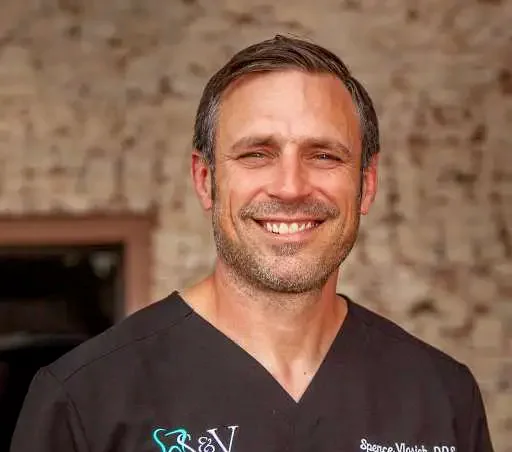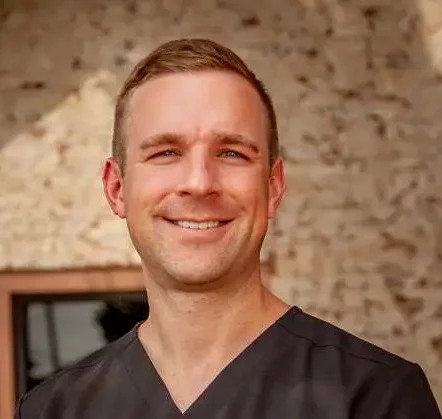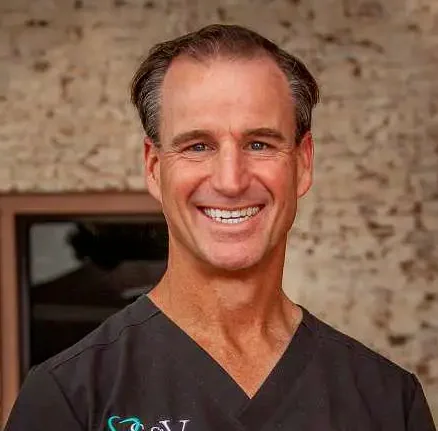Absolutely! Seeing your dentist every three months for routine cleanings and exams is incredibly important for good oral health, even if you think there’s nothing wrong. Routine cleanings and a dental exam can detect problems early on when they’re much easier and less expensive to treat. Plus, gum disease is the leading cause of tooth loss in adults, so it’s important to catch it in the early stage to avoid more serious damage.
Your toothbrush should be replaced every three to four months or when your bristles become frayed and worn. You may also want to replace your toothbrush if you have been diagnosed with an illness such as a cold or the flu. This is because your toothbrush could carry the germs that cause these illnesses.
Dental implants are one of the safest tooth replacement treatments available, as they are placed directly in the jawbone, where they fuse with the bone and act as artificial roots that provide support to the crown.
However, you will need to care for your implant properly to prevent it from becoming loose or developing an infection. Good oral hygiene habits are essential to keep your implant healthy, including brushing twice a day for two minutes at a time and flossing at least once per day. It’s also important to visit your dentist for regular checkups and cleanings every six months to remove any plaque that your toothbrush can’t reach, as well as to monitor the health of your new smile.
Dental crowns are typically used to restore a tooth that has been cracked, broken, worn down, or severely decayed. If you experience severe tooth decay that has caused damage to your tooth’s structure, your dentist may recommend a crown. It is cemented into place over your tooth to improve its appearance and strength. It can also restore the tooth’s ability to function like normal because you can bite down on it as if it were your own natural tooth.
If you only have one or two teeth in a row, then you may be a candidate for a dental bridge. These bridges can be attached to your natural teeth or implants to give you added support while still leaving your smile looking natural. They come in a variety of materials, including metal and porcelain, to match your smile seamlessly and provide a comfortable fit. You can even choose between removable and non-removable options based on your personal preference and lifestyle. However, if you do not have enough healthy teeth to support a bridge, then you can speak to your dentist about other restoration options.
A full recovery from oral surgery is typically between three and seven days, but this varies based on the procedure you had performed. For example, tooth extraction may only require a day or two of recovery, while a complex jaw surgery may require up to a week. Your dentist will provide you with more specifics following your procedure. In the meantime, here are some general guidelines to follow as you begin to recover.
- Stick to soft foods for the first couple of days as you recover. Avoid foods that are crunchy or hard to chew.
- Pain medication may help with any discomfort you experience during your recovery. Make sure that you follow the instructions provided on the medicine bottle to avoid misuse.
- Do not smoke or use tobacco products for several days after your surgery. Tobacco products can slow down the healing process and increase the risk of infection.
- Continue to brush your teeth twice a day and clean your mouth thoroughly after you eat meals. This will help to keep your mouth clean and healthy while you heal.
- Follow any other recommendations provided by your dentist.
Many patients believe that root canals are very painful procedures, but this is simply untrue! Root canal treatments are just one of the common endodontic treatments we offer at our practice; they are necessary when the nerve of a tooth becomes infected or inflamed due to the deterioration of its enamel and dentin layers. When this deterioration occurs, the tooth’s nerves die and become painful while the infection spreads to other teeth or other areas of the face. This infection can spread into the bloodstream and lead to other serious health issues when left untreated.
Yes, clear aligners are comfortable and easy to wear. Each aligner is made of smooth, BPA-free plastic that won’t irritate your mouth like traditional metal braces. The smooth material also makes it easy to remove the aligners to eat and drink during treatment.
Unlike traditional braces with metal wires and brackets, you are unable to feel the aligners working to straighten your teeth because they are virtually invisible. They are so discreet that most people won’t even know you are wearing them! These aligners are removable for convenient eating and drinking. However, you must wear your aligners as much as possible – only remove them to eat, drink, brush, and floss.
If you’re experiencing any pain, bleeding, or swelling in your mouth, you should seek help right away. A sudden toothache could point to an infection in the tooth’s pulp tissue, which will require emergency care to drain and clean the tooth and protect the surrounding tissues. You may also experience trauma to your teeth from sports injuries or auto accidents. Mouthguards can protect your teeth from these types of injuries. But you can also experience trauma to the mouth due to falls or other incidents. If you lose a tooth because of one of these types of accidents, it’s important to seek treatment as soon as possible because the infection can set in quickly without treatment.
Just like your natural teeth, it is important to practice good oral hygiene and regularly clean your clear aligner trays to prevent plaque buildup. Brush your teeth after every meal or snack and floss at least once per day to keep your smile clean and healthy. Avoid placing your clear aligners in hot water or direct sunlight, as this may soften the material of the tray and cause warping. It is best to keep each set of aligners in its case when not wearing to protect them from damage and prevent contamination from other oral bacteria. Use a denture cleaner or mild soap and warm tap water to wash and rinse your clear aligner trays daily to keep them fresh and clean between uses. Every morning, brush and rinse your trays with your regular toothpaste before placing them back into your mouth.
There are a number of factors that can lead to cavities. First, poor oral hygiene is the most common cause of cavities. When you don’t take care of your mouth, you’re leaving yourself vulnerable to decay and disease. Failing to brush your teeth properly, not flossing regularly, and not visiting the dentist on a routine basis can all lead to trouble along the gum line and in between teeth.
If you’re not careful with your oral healthcare, harmful bacteria in your mouth could weaken your enamel and break down the protective layer of your teeth. A sticky film called plaque can form along your teeth and gums as a byproduct of food particles left behind after meals. Plaque can eventually harden into tartar if it’s not removed through proper brushing. Once it’s hardened, only professional cleaning can remove this harmful substance from your mouth. Your dentist will also check for any early signs of tooth decay during your regular checkups to ensure nothing progresses further than the surface level.
Another common cause of tooth decay is the consumption of sugary and/or acidic foods and beverages that can wear away at the protective outer layer of your teeth. Acidic substances like wine, citrus fruits, and highly processed or sugary foods can cause erosion of the enamel layer and can even cause discoloration if you have a sweet tooth!
Smoking affects your oral health in a number of ways, including increasing your risk of gum disease. Smokers are twice as likely to have periodontal disease as non-smokers. This is because tobacco is acidic and can break down your gum tissues, exposing the roots of your teeth to bacteria and inflammation. This can lead to bone recession and tooth loss. It can also increase your risk for oral cancer.








